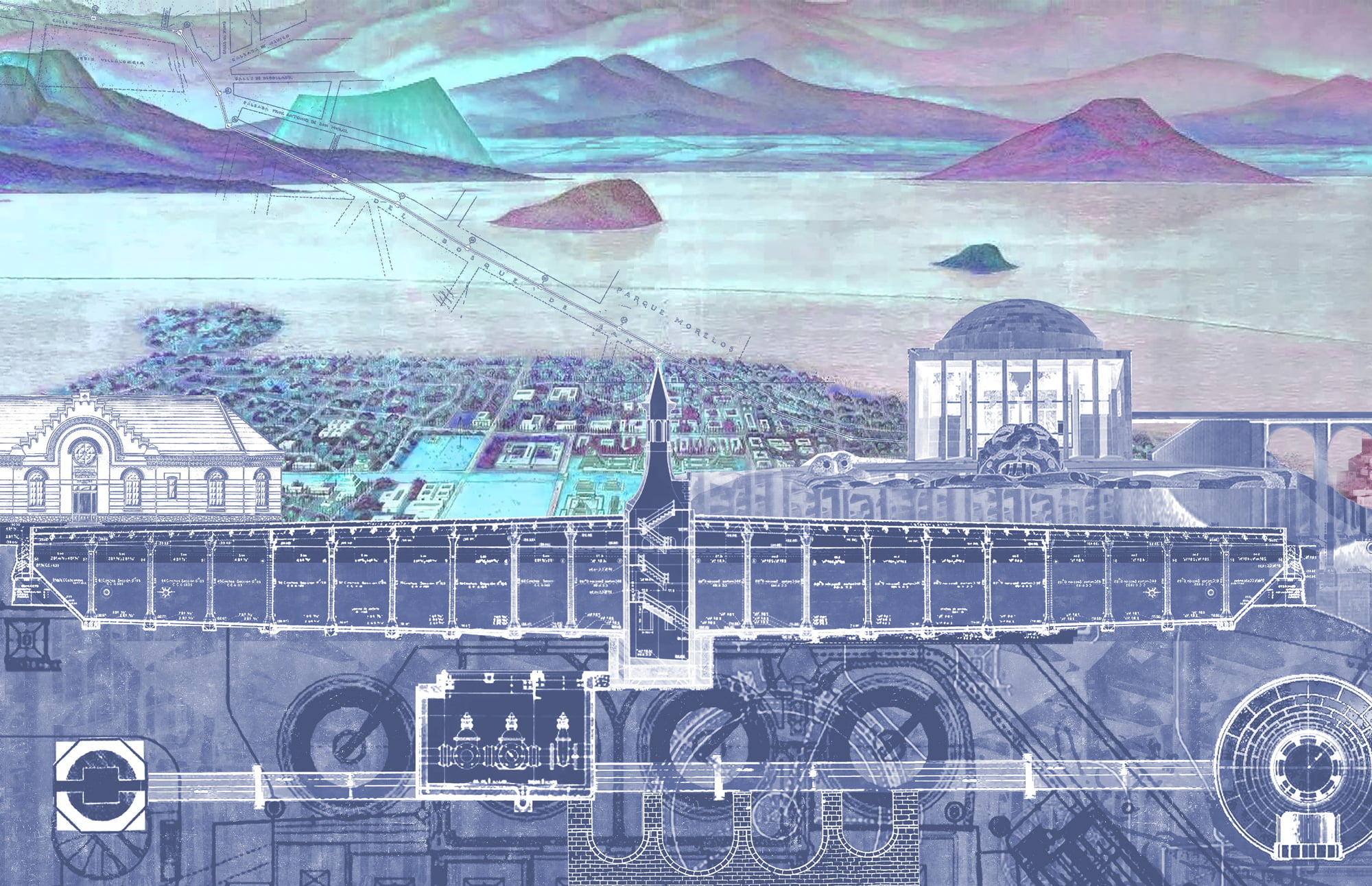
On The Wall
A Liquid Relationship
THERE THERE
A Liquid Relationship explores the dysfunctional relationship of our society with water. Through two scenes we expose a relationship full of contradictions, tensions and abuse of power. The first scene represents the evolution of this relationship, using Mexico City as a case study. From the pre-Hispanic city that harmoniously coexisted with water, to the city of Eurocentric modernity in which the ideals of progress aspired to control, subjugate and rationalize water flows, to the dystopian present of persistent droughts, privatization and pollution of water bodies.
The second scene exposes a dystopian present-future of decontextualized water monuments that have fallen into obsolescence. The scenes confront us with a series of questions. What is the relationship of different communities with water from a class, gender and economic status perspective? Who is forced to rationalize this resource and who can enjoy it in a hedonistic way? How have extractive and colonialist practices determined the privilege of the right to water? We live in a present of unequal water consumption practices—from private pools, and idyllic golf course meadows, to the desperate purchase of water tankers due to lack of supply in disadvantaged communities. The acceptance and perpetuation of these antagonistic realities condemns us all to a so-called dystopian future in which many communities have already been immersed for decades.
The second scene exposes a dystopian present-future of decontextualized water monuments that have fallen into obsolescence. The scenes confront us with a series of questions. What is the relationship of different communities with water from a class, gender and economic status perspective? Who is forced to rationalize this resource and who can enjoy it in a hedonistic way? How have extractive and colonialist practices determined the privilege of the right to water? We live in a present of unequal water consumption practices—from private pools, and idyllic golf course meadows, to the desperate purchase of water tankers due to lack of supply in disadvantaged communities. The acceptance and perpetuation of these antagonistic realities condemns us all to a so-called dystopian future in which many communities have already been immersed for decades.